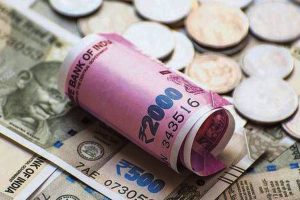More than 58.19% polling was recorded by 5 pm amidst a huge voter turnout in the 24 assembly constituencies of Jammu and Kashmir where elections were held in the first phase on Wednesday. The final voting percentage is expected to be available by late evening as polling will continue until 6 pm.
Except for a brief suspension of polling in Kishtwar due to a quarrel between supporters of two candidates, the process remained largely peaceful.
Advertisement
Long queues of voters were seen outside all 3,276 polling booths right from the morning when polling started at 7 am.
The Inderwal, Padder and Kishtwar constituencies in the Kishtwar district of Jammu recorded the highest polling percentage of 80.06, 76.80, and 75.04, respectively. The Doda West also polled 74.14% votes.
However, polling in the South Kashmir constituencies that went to the polls in the first phase was lower compared to the Jammu region. The highest turnout in the Kashmir valley was recorded in Pahalgam, with 67.86% polling. The lowest turnout was in Tral, where 40.58% of votes were cast till 5 pm.
The Bijbehara constituency, where PDP chief Mehbooba Mufti’s daughter Iltija is contesting for the first time, recorded 56.02% voting. Iltija was locked in a triangular contest with Bashir Ahmad Veeri of the National Conference and Sofi Mohammad Yousuf of the BJP.
Pulwama and Shopian, considered hotbeds of terrorism, witnessed 46.22% and 54.72% voting, respectively.
These elections, being held in three phases, are taking place after a gap of ten years. The first phase of polling was conducted in 24 assembly seats in seven districts of South Kashmir, the Chenab Valley, and parts of the Pir-Panjal mountain ranges of the Jammu region, areas that have witnessed Pakistan-sponsored terrorism.
These districts are Anantnag, Pulwama, Shopian, and Kulgam in the Kashmir Division; Doda, Ramban, and Kishtwar in the Jammu Division. Constituencies that went to polls on Wednesday are Pampore, Tral, Pulwama, Rajpora, Zainapora, Shopian, DH Pora, Kulgam, Devsar, Dooru, Kokernag (ST), Anantnag West, Anantnag, Srigufwara-Bijbehara, Shangus-Anantnag East, Pahalgam, Inderwal, Kishtwar, Padder-Nagseni, Bhadarwah, Doda, Doda West, Ramban, and Banihal.
More than 23.27 lakh voters were registered to decide the fate of 219 candidates in the first phase. Interestingly, there was a high number of 91 (41.55%) independents.
It is the first time in about 37 years that the banned Jamaat-e-Islami has participated in the elections by fielding its candidates as independents. Besides, bailed-out MP Engineer Rashid, who is facing allegations of terror funding, has also fielded his candidates.
In view of the recent terrorist attacks, multi-tier security arrangements were made by deploying central para-military forces, J&K Armed Police, J&K Police, and intelligence agency personnel. Personnel from BSF, ITBP, SSB, Assam Rifles, CRPF, etc. were deployed in strength to ensure free and fair elections. The Army was keeping vigil along the Line of Control (LOC), and in higher reaches.
Among those in the fray were Mohammad Yousuf Tarigami of CPI(M), a 5-time MLA; PDP’s youth leader Waheed Parra; BJP’s Shagun Parihar, whose father Ajit Parihar and uncle Anil Parihar were killed by terrorists in November 2018; and Congress candidates GA Mir, Peerzada Sayeed, and Vikar Rasool Wani.











